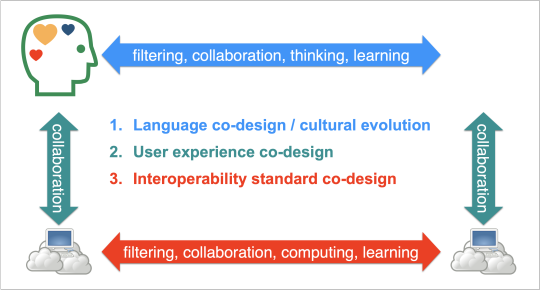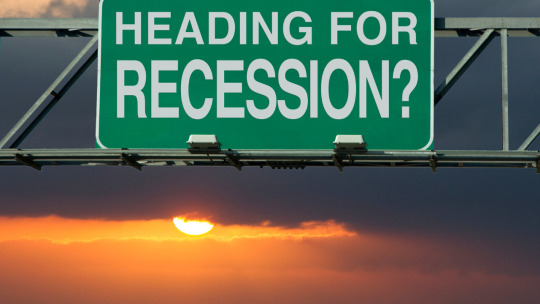#societythings
Text

Pat Cleveland for Patrick Kelly. 📸 : Paul van Ravenstein. #Societythings
#darling#darling bonnie#darling society#darling bonnie land#high class hip hop#high street culture#art#culture#style#beauty#lifestyle#lifestyle blog#music#music blog#pat cleveland#patrick kelly#vintage#retro#josephine baker#fashion#high fashion#high style#black girl magic#chic#glamour#societythings
10 notes
·
View notes
Text
Darling Bonnie’s Memos 📝
Re: Hi, Society!
🔊 Sound on & up!
Feeling like a show off, decided to grace you with a showroom that’s giving High Street Culture versions of a speech made at balls designed for debuts, mostly because tis the season for small offerings designed for the Interlude.
x,
DB
#darling#darling bonnie#darling society#darling bonnie land#high class hip hop#high street culture#art#culture#style#beauty#lifestyle#lifestyle blog#music#music blog#rap#new music#new song#singer songwriter#pop music#societythings#lyrics#lyric quotes#lyric posting#song lyrics
2 notes
·
View notes
Photo

Maan ki murade... @instarj_thoughts #life #love #lifetruth #lovethings #mindset #mindgames #mindbodysoul #societythings😜 #straight #thinking #everythinkispossible #thanksforeverything❤️ #thankyougod🙏 #positivethoughtsonly #instarjthoughts #loveyoushiva❤️ #loveyouzindegi❤️ https://www.instagram.com/p/CeF1EHQh34d/?igshid=NGJjMDIxMWI=
#life#love#lifetruth#lovethings#mindset#mindgames#mindbodysoul#societythings😜#straight#thinking#everythinkispossible#thanksforeverything❤️#thankyougod🙏#positivethoughtsonly#instarjthoughts#loveyoushiva❤️#loveyouzindegi❤️
0 notes
Text
Post: Dr. Claud Anderson Discusses Americas Race Based SocietyThe United States Supreme Court is a...
Dr. Claud Anderson Discusses Americas Race Based SocietyThe United States Supreme Court is a guardian of racism!!!~ Dr. Claude Anderson https://www.blaqsbi.com/Z9V
0 notes
Link
Ask any astronomer, and they will tell you that all of the planets in the Solar System (including those “dwarf planets”) have satellites, with the exception of Mercury and Venus. However, that is not entirely the case, as Venus has what is known as a “quasi-moon” – a large asteroid that orbits the planet but is not gravitationally bound to it. In 2002, astronomer Brian Skiff discovered this body using the Discovery Telescope at the Lowell Observatory (where Clyde Tombaugh discovered Pluto). Until recently, this object was known by its official designation, 2002VE68. However, on February 5th, 2024, the International Astronomical Union (IAU) conferred a new name for the object: Zoozve. The name was announced in a bulletin (vol. 4, no. 5) issued by the IAU’s Working Group for Small Bodies Nomenclature (WGSBN). The IAU, which is responsible for naming celestial objects, traditionally prefers to assign names that come from mythological traditions to objects that cross Earth’s orbit. But in this case, the origins of Zoozwe’s strange name are more of (to quote Bob Ross) a “happy accident,” where a children’s poster that showed the object led to a conversation and an official request.First, a little bit about the object in question and others that share the designation of “quasi-moon.” As noted, the name refers to objects that orbit larger bodies but are not gravitationally bound to them. While Zoozwe orbits the Sun, it also swings around Venus in a complex pattern that (when visualized) resembles a set of wings. Because its orbit is unstable, it will eventually be ejected from its quasi-satellite orbit. Because Zoozwe also crosses Earth’s orbit and measures 230 meters (750 feet) in diameter, it’s considered a near-Earth asteroid (NEA) and a potentially hazardous object. The orbital path of Zoozve, formerly known as Asteroid 2002VE68. Credit: Phoenix7777/HORIZONS system/JPL/NASAThe name was proposed by Latif Nasser, a science communicator and the co-host of the podcast series Radiolab. As he was putting his child to bed one night, he noticed a poster on their wall featuring a satellite with the name “ZOOZVE” orbiting it. The poster was the work of Alex Foster, a professional artist who creates maps and illustrations for websites, books, prints, and posters. While researching the Solar System for this particular poster, he made a note about 2002VE68 and later misread it as “ZOOZVE.” As Nasser related in a recent episode of Radiolab (which aired on January 26th), he began investigating this curious detail. He began by contacting NASA to ask them about it but was told they had never heard of Zoozve and insisted that Venus had no moons. His investigation eventually led him to Skiff and the staff at the Lowell Observatory, who he convinced to appeal to the IAU to officially rename the object Zoozve. The IAU complied and on Monday, February 5th, announced the quasi-moon’s new name. As the WGSBN described it in their bulletin:“This object is the first-identified quasi-satellite of a major planet (Venus). When artist Alex Foster drew this object on a solar system poster for children, he mistook the initial characters of the provisional designation as letters, thus coining an odd and memorable moniker. Name suggested by Latif Nasser.”While such objects have been predicted in the past, none were discovered until Skiff observed and tracked the orbit of Zoozwe in 2002. Since then, a similar body has been observed around Neptune, while seven quasi-moons have been spotted around Earth. What’s more, this may be the first time that an official has been assigned based on a simple and fortunate mistake and some serious amateur sleuthing!Further Reading: The Planetary SocietyThe post Venus “Quasi-moon” Just Got a Name. Henceforth, it Shall be Called Zoozve. appeared first on Universe Today.
0 notes
Link
It is difficult to be indignant about simple sporting greed, when activists claim police repression of women is worse than ever at the heart of Saudi societyThe heat and dust rise early in Riyadh. As the temperature climbs towards...
0 notes
Text
The Civic Debt: Why We Owe Society More Than We Think
As individuals, we tend to take our existence and comfort for granted. We often forget that the society we live in is the reason for the opportunities, safety, and welfare that we enjoy. From public education to healthcare, from infrastructure to national defense, and from social programs to public parks, we benefit from a vast network of resources and services provided by our community and society. In return, we owe it to society to pay back the debt by fulfilling our civic duty, which includes contributing to the welfare of the community, paying taxes, protecting it when necessary, and working in necessary jobs.
The Benefits of Society
The benefits of society are vast, and they are ingrained in every aspect of our lives. For instance, public schools provide the foundation of knowledge that helps us succeed in our careers and personal lives. Similarly, public universities and colleges offer affordable education to a vast majority of students. Without these institutions, many of us would not have access to education, which could have severe implications on our future prospects. Other services, such as roads, electricity, water, and sanitation, ensure that we can live our lives safely and conveniently. Public infrastructure is the backbone of a functional society and ensures that people can move around, access essential services, and pursue their interests.
Furthermore, society provides a safety net for those who face hard times. Government programs such as Medicare, Medicaid, Social Security, and unemployment insurance provide financial and healthcare assistance to people who need it. These programs help prevent poverty, homelessness, and ensure that people can live their lives with dignity.
Public parks, museums, and other cultural institutions offer a platform for people to explore the world and learn about different cultures. They also provide a space for people to connect, relax, and enjoy their surroundings.
Every child is born into this world without any knowledge or skills, and they rely on the society to provide the necessary resources to grow and develop. In most cases, these resources are provided through the taxes paid by the community. As individuals, we have a moral obligation to repay this debt to society by giving back to the community that supported us.
You are a drain on this world.
Hyper individualism is a popular and dangerous mindset that can delude us into thinking that our actions don't have any impact on the world. We think if we just stay in the house on TikTok,
we are avoiding harming the world and therefore are free to be greedier and selfish. This belief can cause us to prioritize our own desires and needs over the welfare of the community and society as a whole. It is essential to understand that our very existence takes from the world, and it is impossible to avoid this debt.
Every choice we make, from the products we consume to the energy we use, has an impact on the environment and the people around us. Even turning on the water tap or catching the bus is taking from society. Choosing not to contribute has an effect. Choosing to support civil unrest under the guise of justice has an effect. The realization that we are all interconnected, and our actions have consequences is critical to understanding our role in the world. By embracing this perspective, we can take responsibility for our actions and work towards making a positive impact on the world.
How to give back
One way of giving back is by becoming an active and engaged member of the community. This includes participating in local events, volunteering, and supporting community initiatives. By doing so, we contribute to the welfare of the community, which helps to create a better and safer environment for everyone.
The best way to do this is by producing smart, talented, well-adjusted children in a stable family structure. This is why government, religion and society had been so focused on this for millennia.
Paying taxes is another crucial way of fulfilling our civic duty. Taxes provide the funds necessary for the government to maintain public infrastructure, provide social programs, and ensure that the community is safe and protected. Without taxes, the government would not have the necessary resources to maintain these services, and society would suffer. To ensure your funds go where you want, donate extra directly to the programs you want to support. Think of it as a voluntary value tax.
In addition to taxes, we can also contribute to society by pursuing jobs that are essential to the functioning of the community. This includes professions such as construction, infrastructure, teaching, childcare, healthcare, education, law enforcement, and public service. These jobs are critical to ensuring that the community functions smoothly and safely. Other fluffy jobs are a lot easier and also offer very little social value when it comes to survival. You can only have those pointless jobs cause other people are working a shit ton harder and dirtier.
Finally, protecting the community when necessary is also a part of fulfilling our civic duty. This could involve reporting crimes, helping in emergencies, and being prepared to act when necessary to protect the community from harm, even from your own bad life choices. So, following the laws of safety, no drinking and driving, gun safety, following building codes and zoning laws. Yes, this even includes going to jail when you should. This red tape is literally stopping anarchy.
Conclusion
We owe a debt to society for the opportunities, safety, and welfare that we enjoy. As individuals, we can repay this debt by fulfilling our civic duty, which includes contributing to the welfare of the community, paying taxes, protecting it when necessary, and working in necessary jobs. Society provides us with the foundation to live our lives to the fullest, and it is our responsibility to give back to it in every way possible. By doing so, we can help ensure that future generations can enjoy the same benefits and opportunities that we enjoy today.
0 notes
Text
Unraveling the Menace of Drug Trafficking: A Global Plague

Drug trafficking, a dark underbelly of our society, is a pervasive criminal activity that knows no borders. From remote villages to bustling urban centers, its insidious reach permeates every corner of the world. This blog delves into the shadowy world of drug trafficking, exploring its implications on societies, economies, and public health. It aims to raise awareness about this global plague and emphasizes the urgent need for collective action to combat this menace.
Understanding Drug Trafficking
Drug trafficking refers to the illegal production, transportation, and distribution of controlled substances, such as narcotics, hallucinogens, stimulants, and opioids. Perpetrators of this illicit trade exploit the high demand for these substances to reap enormous profits while ignoring the catastrophic consequences on individuals and communities.
The Impact on Society
The tentacles of drug trafficking extend beyond the dark alleys of crime-ridden neighborhoods. The social impact is profound, affecting families, communities, and societies as a whole. Addiction, violence, and broken families are some of the direct consequences of drug abuse. The loss of lives, ruined futures, and shattered dreams paint a grim picture of its devastation.
Economic Ramifications
The economic repercussions of drug trafficking are far-reaching. Illicit drug money infiltrates legitimate economies, facilitating corruption, money laundering, and the financing of other criminal activities. Furthermore, governments spend vast resources on combating drug trafficking, diverting funds from essential social services such as healthcare, education, and infrastructure.
Health Crisis
Beyond the crime and economic implications, drug trafficking fuels a public health crisis. Substance abuse leads to addiction, overdoses, and the spread of infectious diseases like HIV/AIDS and hepatitis. The burden on healthcare systems and the toll on individuals and families are immense.
Transnational Nature
Drug trafficking operates beyond national boundaries, thriving on international networks and connections. Organized criminal groups exploit weak law enforcement and governance in various countries to facilitate the smuggling of drugs across borders. This transnational aspect makes it challenging to tackle the problem effectively, demanding global cooperation and collaboration.
War on Drugs: Successes and Failures
The so-called "War on Drugs" initiated by various governments around the world has witnessed both successes and failures. On one hand, some operations have led to the capture and dismantling of major drug cartels. On the other hand, these efforts have often resulted in escalating violence and unintended consequences, such as the overcrowding of prisons and the criminalization of drug addicts. It is becoming increasingly evident that a more comprehensive approach is needed to address drug trafficking, focusing on prevention, treatment, and harm reduction, alongside law enforcement.
The Need for Holistic Solutions
To effectively combat drug trafficking, a multi-faceted approach is necessary. This approach should include:
International Cooperation: Collaborative efforts between countries are crucial to disrupt transnational drug networks, share intelligence, and coordinate enforcement strategies.
Focused Law Enforcement: While enforcement is essential, it should prioritize targeting high-level traffickers and kingpins rather than low-level users.
Prevention and Education: Investing in drug education programs and prevention initiatives can reduce demand and deter potential users.
Treatment and Rehabilitation: Providing accessible and effective treatment options for individuals struggling with substance abuse is crucial for breaking the cycle of addiction.
Addressing Root Causes: Addressing the underlying socio-economic issues that drive people towards drug trafficking and addiction is vital in eradicating the problem at its source.
0 notes
Link
#Anxiety#CelebratingYourGiftofLife#Depression#Employer#JamesDonaldson#JamesDonaldsonMentalHealth#JamesDonaldsonNotes#JamesDonaldsononMentalHealth#Men#Mental#MentalHealth#MentalChallenges#MentalHealthAwarenessandSuicidePrevention#MentalHealthProfessionals#MentalHealthStigma#MentalHealthSupport#MentalIllness#MentalIssues#Stigma#Stress#Suicide#SuicideAwareness#SuicidePrevention#Women#YourGiftofLife#YourGiftofLife.org#YourGiftofLifeFoundation#Youth#YouthSuicide
0 notes
Text
The Ever-Evolving Landscape of Education
Education is a fundamental cornerstone of society, providing individuals with the knowledge, skills, and tools necessary to succeed in their personal and professional lives. Over the years, education has undergone significant transformations, adapting to societal changes, technological advancements, and evolving student needs. In this article, we explore the ever-evolving landscape of education, from traditional models to innovative approaches, and the impact these changes have had on students, educators, and society as a whole.
Traditional Models of Education
For centuries, traditional models of education were the norm, where students attended brick-and-mortar schools and received instruction from teachers in person. These schools followed a standardized curriculum, focused on rote memorization, and tested students' knowledge through exams and assessments.
While this model served its purpose for many years, it has come under scrutiny in recent times. Critics argue that it does not foster creativity, critical thinking, or problem-solving skills, which are essential for success in today's fast-paced and complex world. Furthermore, traditional models of education do not account for diverse learning styles, leading to a lack of engagement and motivation among students.
Innovative Approaches to Education
To address the limitations of traditional models of education, innovative approaches have emerged, offering more personalized, flexible, and engaging learning experiences. One such approach is online learning, which allows students to learn at their own pace, access a wide range of resources, and connect with educators and peers from around the world.
Another approach gaining popularity is experiential learning, which involves hands-on, real-world experiences that enable students to apply theory to practice. This approach emphasizes collaboration, critical thinking, and problem-solving, preparing students for the challenges of the future.
A third innovative approach that has gained attention recently is gamification, which involves incorporating game-like elements into the learning process to increase engagement and motivation. Gamification can help learners develop new skills and knowledge in a fun and interactive way, making the learning experience more enjoyable and effective.
Impact of Education on Society
The impact of education on society cannot be overstated. Education has been shown to reduce poverty, increase economic growth, and improve health outcomes. It also promotes social mobility, giving individuals from disadvantaged backgrounds the opportunity to achieve their full potential.
Moreover, education helps individuals develop critical thinking, creativity, and problem-solving skills, which are essential for success in today's rapidly changing world. These skills enable individuals to adapt to new situations, navigate complexity, and innovate, contributing to the advancement of society as a whole.
Challenges Facing Education Today
Despite the progress made in education, many challenges remain. One of the most significant challenges is the digital divide, where students from low-income families or rural areas lack access to technology and internet connectivity, limiting their ability to participate in online learning and access educational resources.
Another challenge is the quality of education, particularly in developing countries, where limited funding, inadequate infrastructure, and a shortage of qualified teachers can impede progress. Moreover, education systems often perpetuate inequality, with certain groups receiving better quality education than others, leading to disparities in opportunities and outcomes.
Conclusion
In conclusion, education has come a long way since traditional models were the only option. Innovative approaches have emerged, offering more personalized, flexible, and engaging learning experiences, preparing students for the challenges of the future. However, challenges remain, such as the digital divide and the quality of education, highlighting the need for continued investment and innovation in education.
Ultimately, education is more than just acquiring knowledge; it is about empowering individuals to reach their full potential and contribute to society's advancement. By embracing new and innovative approaches to education, we can ensure that every individual has the opportunity to learn, grow, and succeed, creating a brighter future for us all.
0 notes
Text
Growth. #Societythings
#darling#darling bonnie#darling society#darling bonnie land#high class hip hop#high street culture#art#culture#style#beauty#lifestyle#lifestyle blog#music#music blog#black girl magic#artist#creative#chic#glamour#societythings
10 notes
·
View notes
Text
The relational nervous system of open knowledge flows between human societies
Agents of the cultural immune system within groupsAutistic collaborations constitute the relational nervous system between groupsBeing Autistic in a hypernormative societyThe W.E.I.R.D. scientific approach to knowingBeyond science
The relatively sparse local distribution of Autistic people and the diversity amongst Autistic people, i.e. sometimes very different sensory profiles – and needs, and…

View On WordPress
0 notes
Text
Are We Headed for a Global Recession?

Global recession is a term that has become increasingly common in recent years. It is used to describe an economic decline of a nation, region, or the entire world. Many experts agree that the world economy is on the brink of yet another global financial crisis, largely due to unchecked corporate greed and an over-leveraged banking system.
A global recession occurs when there is a significant reduction in economic activity worldwide. This often takes place after periods of high growth, which result in asset bubbles bursting, creating instability and uncertainty within markets. Historically, global recessions have been caused by factors such as war or natural disasters; however, more recently, they have been triggered by irrational investment decisions from both banks and governments alike.
This article will explore different aspects of past global recessions and their effect on economies throughout history.
Definition of Global Recession
The looming financial crisis and global recession have been topics of intense scrutiny in recent months. A global recession is a significant decline in economic activity, spread across the world, which lasts more than a few months. A drop in the stock markets, an increase in unemployment and tighter credit conditions typically accompany it.
In order to understand the concept of a global recession, it’s important to look at its history and how such events have impacted the economy over time. Since World War II there have been six major recessions on an international scale with varying degrees of severity that have had long-term effects on the global economy, with some taking years to recover from.
At its core, a recession can be defined as two consecutive quarters or more negative economic growth measured by Gross Domestic Product (GDP). During these times, the global economy is weaker and more susceptible to risk.
Causes of Global Recession
The looming financial crisis is a significant threat to the global economy. With the recent economic downturn, it is important to understand why and how global recession occurs. Global recession can be caused by various macroeconomic factors, such as government policies, credit squeezes, overproduction in certain industries, trade deficits, reduced consumer spending and other market disruptions.
In today’s interconnected world, when one country experiences an economic downturn, it can quickly cascade into a full-blown recession across the globe. For instance, if there is decreased demand for products produced in one country due to weakened consumer confidence or higher labour costs, then this can cause a contraction in other international markets as well. Additionally, central banks may make decisions that lead to rising interest rates and currency devaluation, which has broader implications for the global economy overall.
Historical Examples of Global Recession
The looming financial crisis is a continually growing concern, and historical examples of global recessions can provide insight into how grave the situation has the potential to become. In 2008, one of the most devastating economic crises in history occurred when the US housing market collapsed. This caused a ripple effect throughout the world's economy, leading to job losses and widespread poverty. Even before this event, there were other instances of a global recession that impacted markets across all parts of the world.
In 1929, another financial crash brought about by stock market speculation led to an increase in unemployment rates globally. This event was so severe that it became known as 'The Great Depression.' Subsequent recessions have followed since then with varying levels of intensity, such as during Japan's ‘Lost Decade’ in 1989, which lasted until 1999 and affected not only Japan but also much of Asia.
Impacts on the Economy & Society
The global economy is facing a looming financial crisis. The aftermath of the global recession is still being felt, with businesses and governments struggling to keep their finances afloat. With the current economic state of affairs, it’s important to take a look at how this crisis has impacted the economy and society as a whole.
This crisis has resulted in widespread job losses across all industries, leading to higher levels of poverty and inequality. This has had a drastic effect on consumer spending, leading to decreased demand for goods and services. Moreover, businesses are finding it more difficult to access credit, resulting in reduced investment opportunities. In turn, this affects economic growth, further impacting employment numbers and living standards globally.
Moreover, the crisis has led to increased public debt levels in many countries due to government stimulus packages offered during the recession period.
Solutions to an Impending Financial Crisis
The looming financial crisis has been a persistent issue for years, with global recession becoming more and more of a reality. But what solutions exist to help combat the current economic uncertainty? This article takes a look at how governments and businesses are taking action to prevent further financial distress.
In response to the economic downturn, many countries are implementing different measures to stimulate their economy and restore consumer confidence. These include tax cuts, increased spending on infrastructure projects, and targeted investment in certain industries. Additionally, central banks have reduced interest rates in order to encourage lending and borrowing. In some cases, governments are providing assistance programs for those suffering from job loss or lack of income due to the pandemic’s effects on the economy.
Moving Forward
Historical global recessions have had a devastating impact on the global economy. It has brought about business closures, job losses, and uncertainty for millions of people around the world. While there have been some measures taken to address the economic crisis, experts agree that more must be done in order to protect our communities from further financial devastation. We must all work together to enact meaningful change that will help us create a better future for generations to come.
0 notes
Text
Why should one use online healthcare platforms?

Health organizations are providing virtual appointments and are expanding their telehealth options, particularly in light of the COVID-19 pandemic.
Improved technology has made telemedicine easier, even for those who don’t consider themselves computer savvy. Patients can use telemedicine through the MyChart online platform or mobile app, and request a virtual visit with many doctors, practitioners and therapists.
Comfort and Convenience
With telemedicine, you don’t have to drive to the doctor’s office or clinic, park, walk or sit in a waiting room when you’re sick. You can see your doctor from the comfort of your own bed or sofa. Virtual visits can be easier to fit into your busy schedule. With telemedicine, depending on your schedule, you may not even have to take leave time from work or arrange for child care.
Control of Infectious Illness
To help prevent the spread of COVID-19, flu and other infectious diseases, doctors can use telehealth appointments to prescreen patients for possible infectious disease. It also saves sick people from having to come in to the office. Less exposure to other people’s germs helps everyone, especially those who are chronically ill, pregnant, elderly or immunocompromised.
Better Assessment
Telemedicine can give some specialty practitioners an advantage because they can see you in your home environment. For example, allergists may be able to identify clues in your surroundings that cause allergies. Neurologists and physical and occupational therapists can observe you and assess your ability to navigate and take care of yourself in your home. Telemedicine is also a good way to get mental health assessment and counseling.
Family Connections
When consulting with your doctor, it’s always good to have a family member who can help you provide information, ask questions and take note of your doctor’s answers. If that person lives out of town, or even across the country, telemedicine can loop your family member in on the virtual visit if you authorize it.
Primary Care and Chronic Condition Management
Regular visits with primary care practitioners such as those specializing in family medicine, internal medicine and pediatrics, are essential to your family’s health. Telemedicine makes it easy to connect with a doctor or nurse practitioner. Some systems are set up so that new patients can get an appointment with the next available practitioner, which can save time.
DIGITAL STRATEGY
FOCUS AREA WORKING GROUP
The MAPS Digital Focus Area Working Group is a forum to build knowledge and share best practices. The goal is to support the Medical Affairs organization’s efforts to embrace digital innovation through webinars, training, white papers, and best practice sharing. This Focus Area group will leverage other thought-leader forums to share insights and learnings – both successes and failures – across Medical Affairs organizations.
To know more visit:
Medical Affairs Professional SocietyThe MAPS Digital Focus Area Working Group is a forum to build knowledge and share best practices. The goal is to support the Medical Affairs organization’s efforts to embrace digital innovation through webinars, training, white papers, and best practice sharing. This Focus Area group will leverage other thought-leader forums to share insights and learnings – both successes and failures – across Medical Affairs organizations. Activities: Organize workshops for MAPS meetings in the North America, APAC (Asia Pacific – China/Japan), and EMEA (Europe, Middle-East, Asia) regions. Ensure understanding of the current state of digital innovation as it relates to the Medical Affairs function, and the needs of Medical Affairs professionals. Build an understanding of digital opportunity for Medical Affairs professionals and important aspects of a digital-ready culture. Engage experts both inside and outside of pharma, to share their expertise and help Medical Affairs professionals better understand the digital opportunity. Bring case examples to MAPS members to stimulate ideas and applicable innovations in Medical Affairs functional areas such as Medical Information and Field Medical. Build Medical Affairs digital capabilities with specific focus on improving external digital engagement experience and advanced analytics.https://medicalaffairs.org/digital-strategy/
0 notes
Photo

Esa kyun?? @instarj_thoughts #life #love #lifefacts #lifelessons #lifehitshard #societythings😜 #societyfeelings #societyjudgement #lifeatworst #isitmatter🤷♂️ #thanksforeverything❤️ #thankyougod🙏 #instarjthoughts #positivethoughtsonly #loveyoushiva❤️ #loveyouzindegi❤️ https://www.instagram.com/p/CVfdssGhuRL/?utm_medium=tumblr
#life#love#lifefacts#lifelessons#lifehitshard#societythings😜#societyfeelings#societyjudgement#lifeatworst#isitmatter🤷♂️#thanksforeverything❤️#thankyougod🙏#instarjthoughts#positivethoughtsonly#loveyoushiva❤️#loveyouzindegi❤️
0 notes
Link
The object cannot be removed from the reptile, named ‘Godzilla’, due to her weakened state, said the Wildlife Conservation SocietyThe alligator discovered in a New York City park reportedly has a bathtub stopper stuck in her body, and her...
0 notes